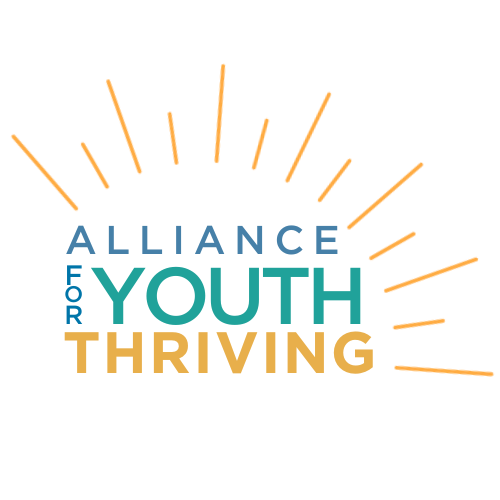
Upcoming Events
Previous Events
Thriving by Design: Using XQ Competencies to Build Learning Experiences that Matter
Spring 2025
A 3-Part Learning Series Starting with an Introductory Webinar
Join us to explore how the XQ Competencies can be used to support your design of powerful learning experiences for adolescents in school or in community settings. Explore practical tools for integrating academic, cognitive, social and emotional competencies and co-designing learning experiences for and with young people.
A Centering Youth Thriving Research Event
Adolescence. Thriving. Learning Ecosystems. How emerging science informs a new education architecture
October 30, 2024
To fully leverage the emergent science of adolescence to optimize youth thriving, the framing of “the new education architecture” needs to push against the traditional boundaries all of us use to close off schools from the broader ecosystem – official definitions of students and staff, classrooms and buildings, school day and school year, and student and school success measures. The best way to do this is to look beyond static well-being indicators (e.g., academic progress) and their associated systems (e.g., schools) and community demographics (e.g., poverty) to embrace three multifaceted, dynamic concepts: Adolescence. Thriving. Learning Ecosystems.
In this 75-minute virtual event, Dr. Tom Akiva, University of Pittsburgh; Dr. Shawn Ginwright, Harvard Graduate School of Education; and Dr. Joanna Williams, Search Institute and the National Scientific Council on Adolescence discussed their research and the intersections between these three concepts.
A Centering Youth Thriving Webinar Series

Exploring how a deep understanding of what it takes for young people and adults to thrive can galvanize our commitment to creating healthy and equitable systems and ecosystems that optimize learning and development.
Knowledge to Power Catalysts invites you to join us as we continue to explore the implications of the evidence curated in “Too Essential to Fail: Why Our Big Bet on Public Education Needs a Bold National Response”, our February 2024 report commissioned by Education Reimagined.
Too Essential to Fail brings together a preponderance of evidence from disparate sources that combined give us the confidence we need to create “a new education architecture that leverages the full complement of community resources needed to empower and support learners for life, work, and civic engagement.” This confidence, we argue, does not come solely or even primarily from the reform efforts inside the education system. It comes, instead, from the increased understanding among educators, employers, parents, youth and community development practitioners of the importance of understanding both the individual and collective nature of youth thriving.
Youth thriving is more than well-being. Thriving young people are healthy, productive, and connected, have a forward-driven sense of purpose and agency, and are grounded in a strong sense of self and community.
Thriving communities need thriving youth. Youth are the innovators who make sense of the changing world and shape our future. They are a force for good. But too few young people experience the conditions needed to thrive, putting our economy and our democracy at risk.
Thriving ecosystems need thriving systems. Thriving systems are effective and supportive and help the people in their employ look outward and connect to the broader ecosystem. They give them time, training, tools, and permission to understand and connect to youths’ lives beyond their walls.
Thriving youth need thriving ecosystems. As young people seek out new experiences that help them shape their identities and find a sense of purpose, they need steady access to adults throughout their ecosystem who help them find their sparks and see multiple pathways for exploration, growth, and contribution.
Over the summer and into the fall, we invite you to join live remixes of some of the amazing presentations and discussions from our April 1-2 Convening Centering Youth Thriving: Moving from Systems to Ecosystems. These webinars provide opportunity for participants and others to take a deeper look at the meeting themes. Click to learn more about the participants, planners, and early products.
#5 – A Centering Youth Thriving Webinar Series
Thriving Evidence: How Expanding Credit for Learning Outside of Classrooms Helps Young People Thrive
September 17, 2024
Join Andrew Frishman, Co-Executive Director of Big Picture Learning, Peter McWalters, former Commissioner of Elementary and Secondary Education of the State of Rhode Island, and Alexis Steines Rao, Vice President of Innovation and Outreach at the Afterschool Alliance for a lively and candid discussion of the current landscape of state and local policies that allow students to get credit for anywhere, anytime learning. Together they’ll explore how and why these policies have come into being, and how they have supported or unintentionally thwarted the development of robust learning ecosystems that illuminate multiple pathways towards accruing credits that matter for young adult success.
PowerPoint Presentation
#4 – A Centering Youth Thriving Webinar Series
Thriving Communities: How Harnessing the Assets of Community Members Fuels an Abundance of Learning Experiences
August 20, 2024
Join Josh Schachter, CommunityShare’s Founder and Executive Director, and Patrick DiSimeo, the Chief Strategy Officer at Cruces Creatives to get inspired about why and how schools and OST spaces can create more relevant and vibrant learning experiences by fully leveraging the skills, knowledge, and life experiences of community members. Over the past decade, CommunityShare has developed three scalable strategies that have helped communities like Tucson, AZ and Las Cruces, NM steward the growth of equitable learning ecosystems that help youth, adults, and communities thrive.
PowerPoint Presentation
#3 – A Centering Youth Thriving Webinar Series
Thriving School Systems: How the XQ Competencies Anchor Youth Thriving and Propel School Transformation
August 20, 2024
The XQ Institute is dedicated to rethinking the high school experience so every student graduates ready to succeed in college, career, and real life. Based on cutting edge research in adolescent neuroscience, developmental psychology, and the science of learning—and endorsed by experts, educators, and students—the XQ Competency framework provides a new way to define student success by fully integrating cognitive, social, emotional, and academic learning. Join XQ Senior Advisor Michele Cahill in a conversation about XQ’s suite of tools for bringing the XQ Competencies to students and their communities, including a mini design sprint to create powerful learner experiences in your youth program, school, or classroom.
#2 – A Centering Youth Thriving Webinar Series
Starting with Goals: Helping Systems Understand Their Role in Supporting Ecosystem Health and Equity
August 6, 2024
“Too Essential to Fail” brings together a preponderance of evidence from disparate sources that combined give us the confidence we need to create “a new education architecture that leverages the full complement of community resources needed to empower and support learners for life, work, and civic engagement.” This confidence, we argue, does not come solely or even primarily from the reform efforts inside the education system. It comes, instead, from the increased understanding among educators, employers, parents, youth and community development practitioners of both individual and collective nature of youth thriving.
- Youth thriving is more than well-being.
- Thriving communities need thriving youth.
- Thriving youth need thriving ecosystems.
- Thriving ecosystems need thriving systems.
On August 6, Karen Pittman and Merita Irby, reviewed the evidence presented in Too Essential to Fail to show its relevance for these four assertions that ground Centering Youth Thriving Initiative. They also brought in new findings to further make the case for starting with this bold but attainable goal.
#1 – A Centering Youth Thriving Webinar Series
Learning Ecosystems: An Introduction with Examples
July 2, 2024
In the recently released report, “Too Essential to Fail: Why Our Big Bet on Public Education Needs a Bold National Response” (commissioned by Education Reimagined), Karen Pittman and Merita Irby outline how we can create “a new education architecture that leverages the full complement of community resources needed to empower and support learners for life, work, and civic engagement.” They make the case that, taken together, parents, learners, community organizations, employers, academic researchers, and educators – both teachers and administrators – know enough about what isn’t working, what is working, and what is needed to make education meaningful and impactful for everyone. It is time to stop tinkering around the edges and time to move from thinking about systems to focusing on improving the health of learning ecosystems. But what, exactly, is a learning ecosystem?
On July 2 we explored core principles of learning ecosystems and what it takes to ensure they are healthy, equitable, and thriving. We were joined by Dr. Tom Akiva, University of Pittsburgh, and Tyler Samstag, Remake Learning to take away the mystery of what learning ecosystems are and learn about the decades of innovative ecosystems stewardship in and around Pittsburgh, PA.
A Centering Youth Thriving – First Convening
Centering Youth Thriving: From Systems to Ecosystems Convening
April 1 & 2, 2024
Feedback about the event:
“Thrilling!”
“What an incredible group of people together in one room. Movement makers!”
“So many people actually focused on how to change how we do things. It wasn’t just conversation. It was action.”
“Mind expanding.”
“Mind blowing.”
“The best think I’ve binged in years.”
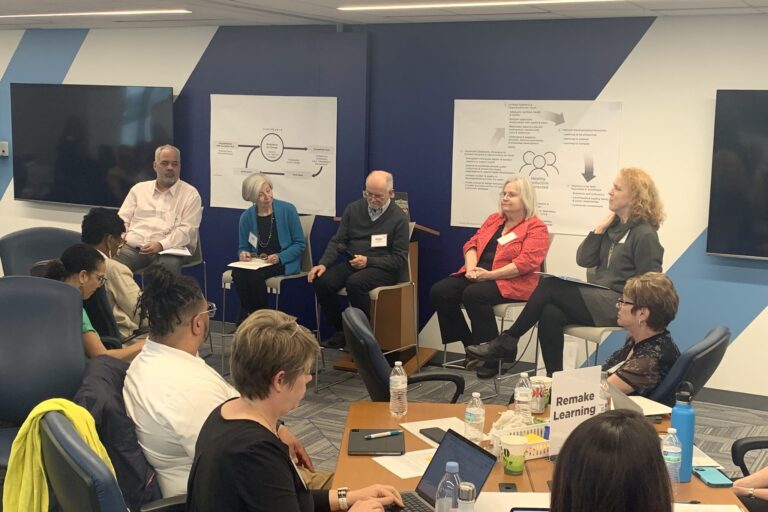
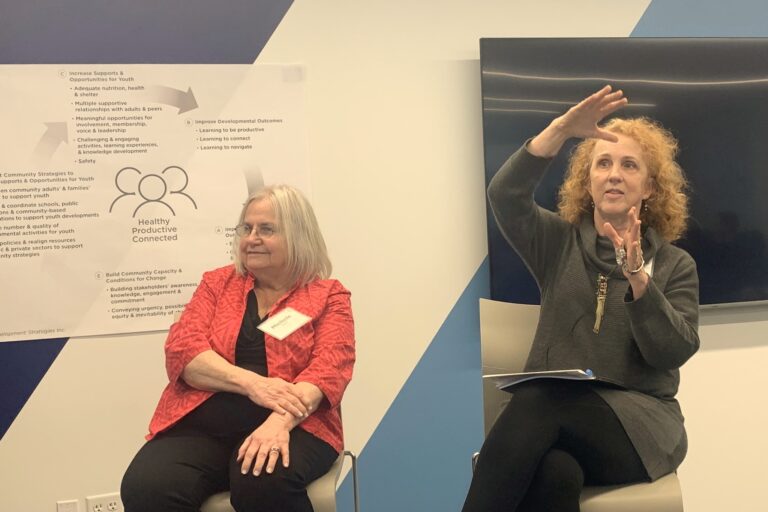
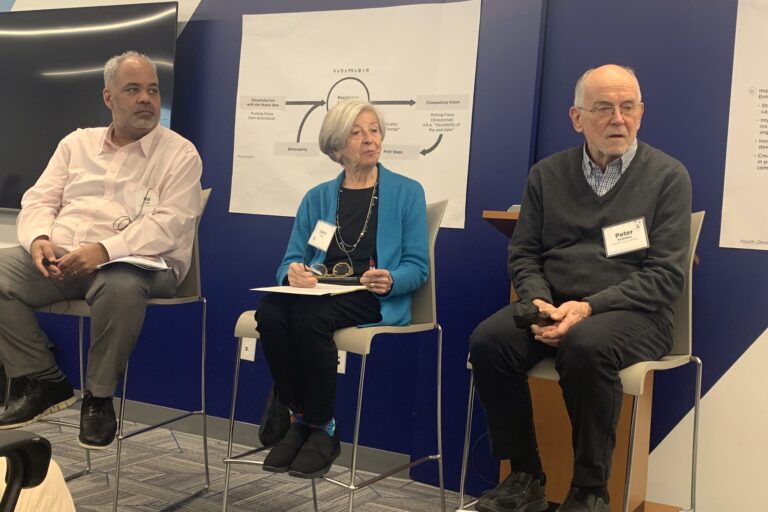
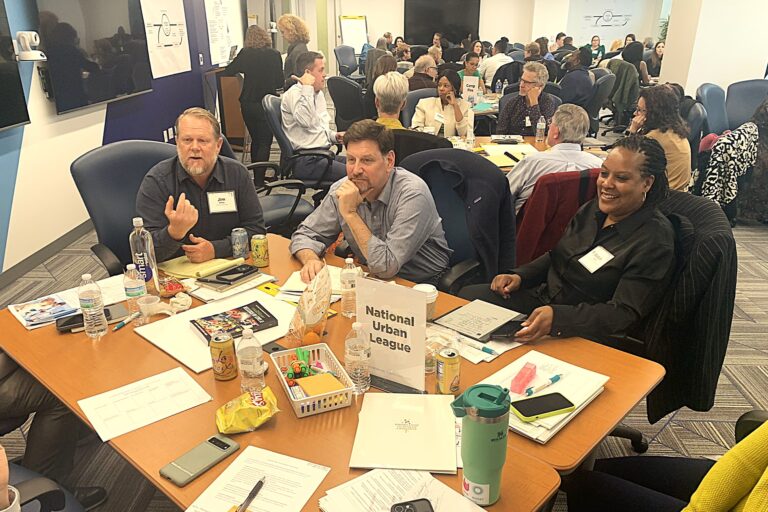
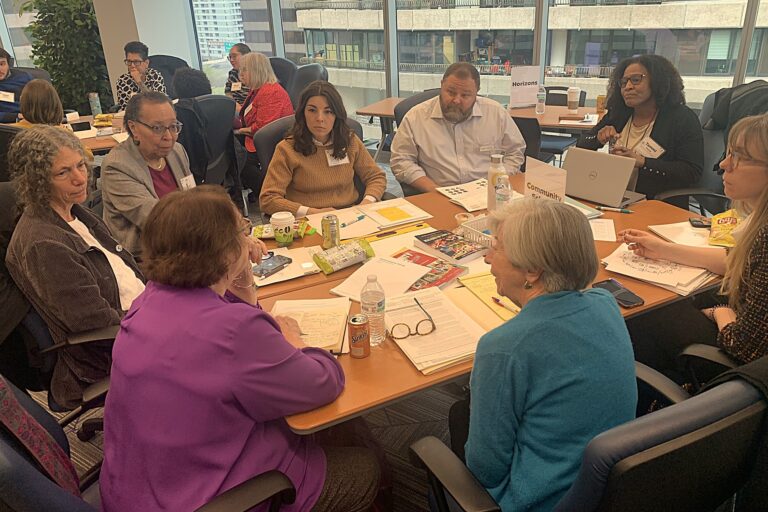
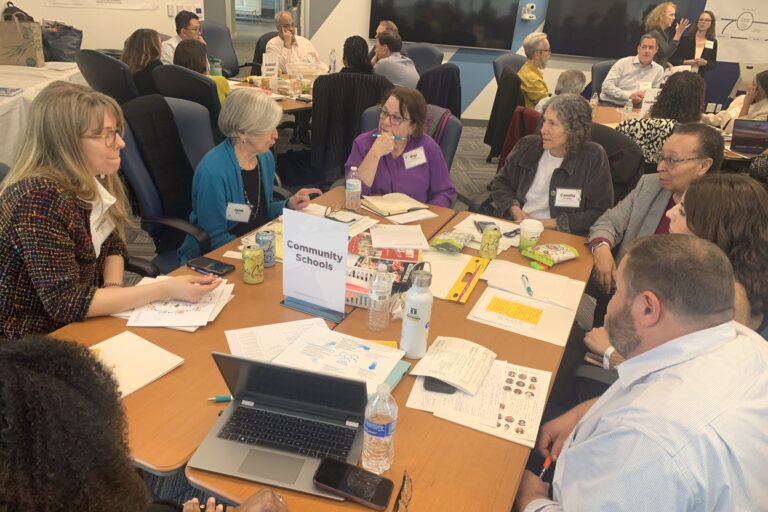
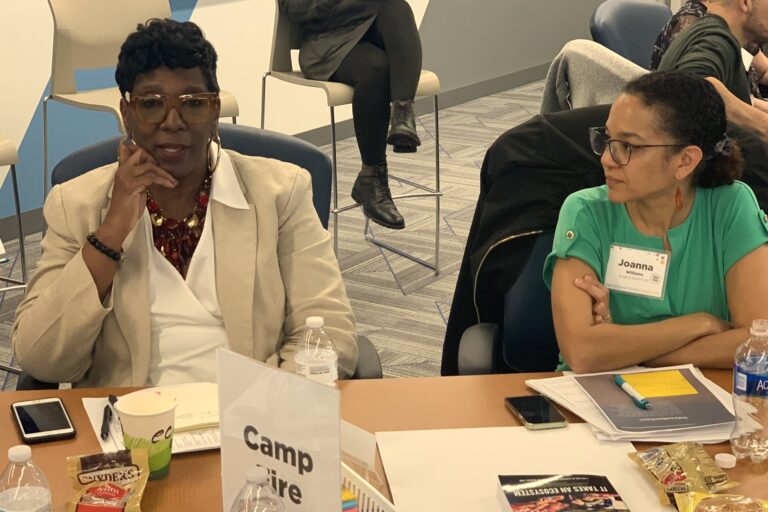
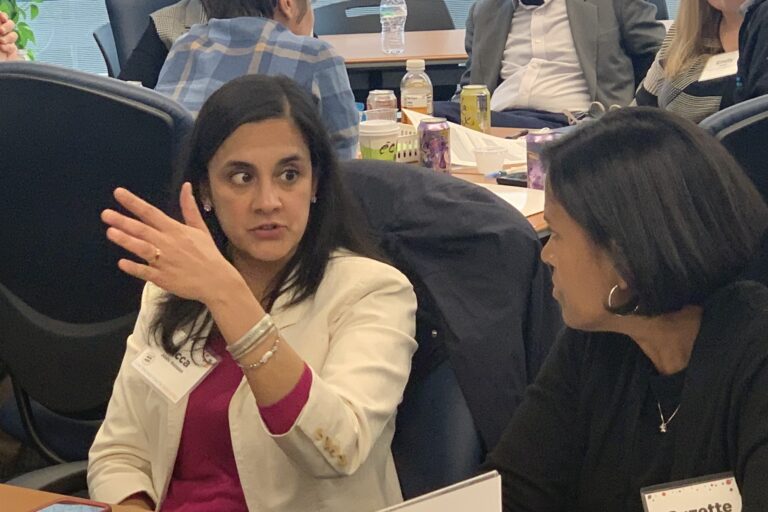
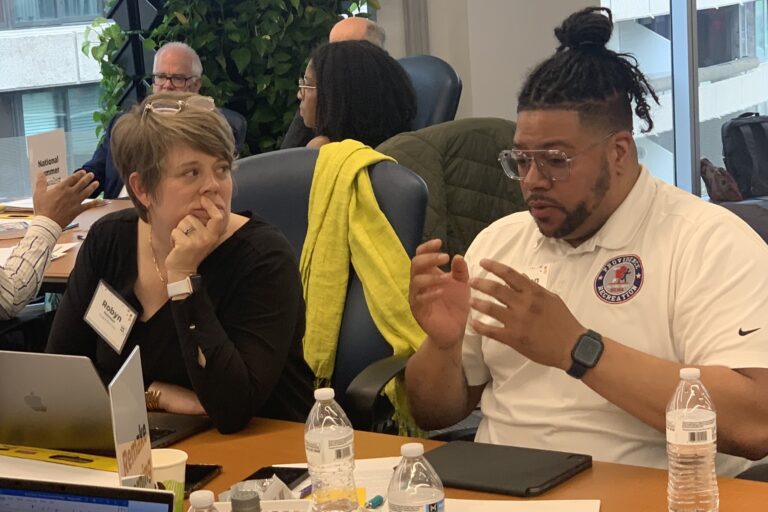
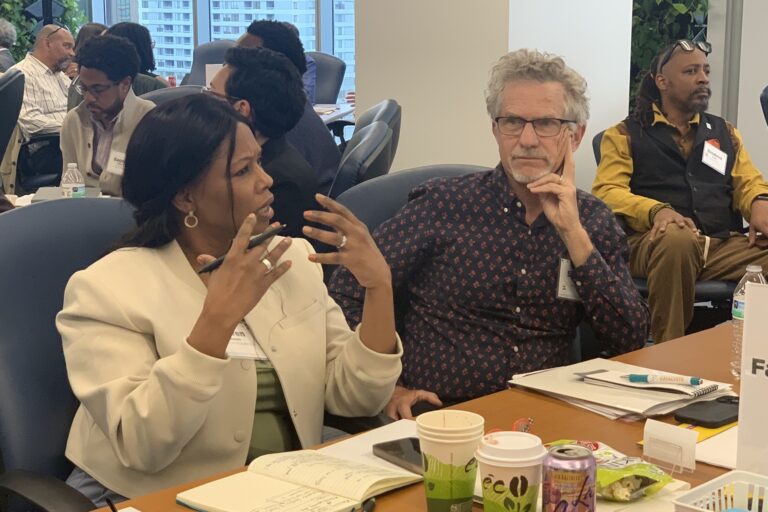
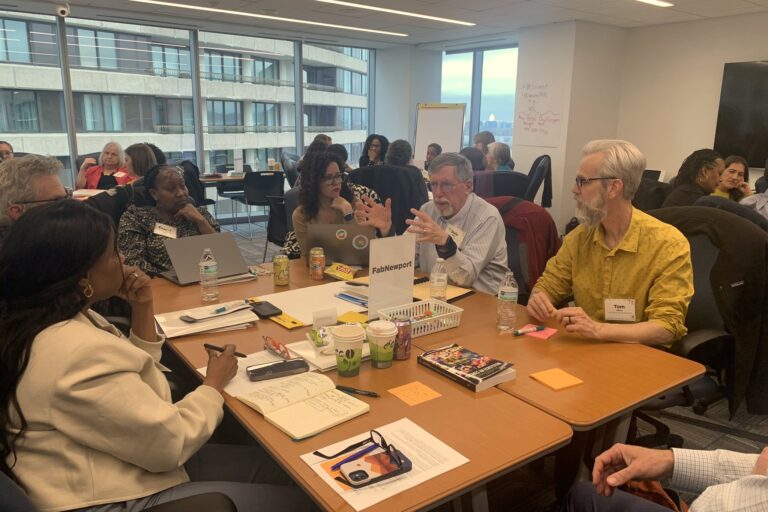
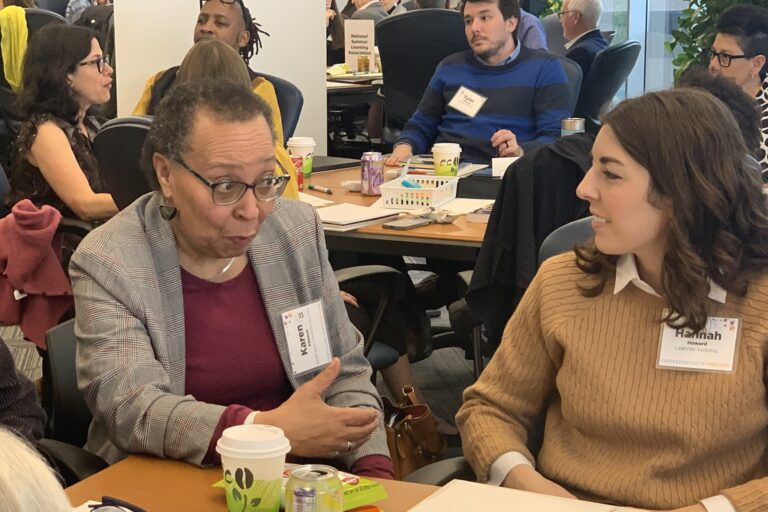
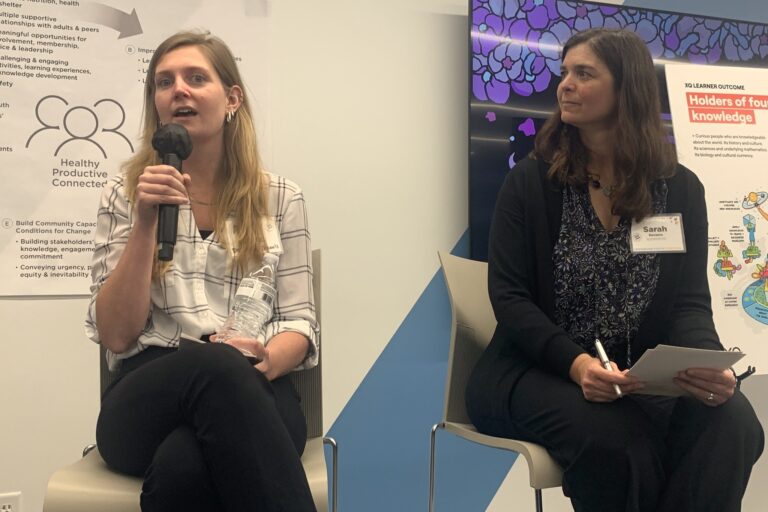
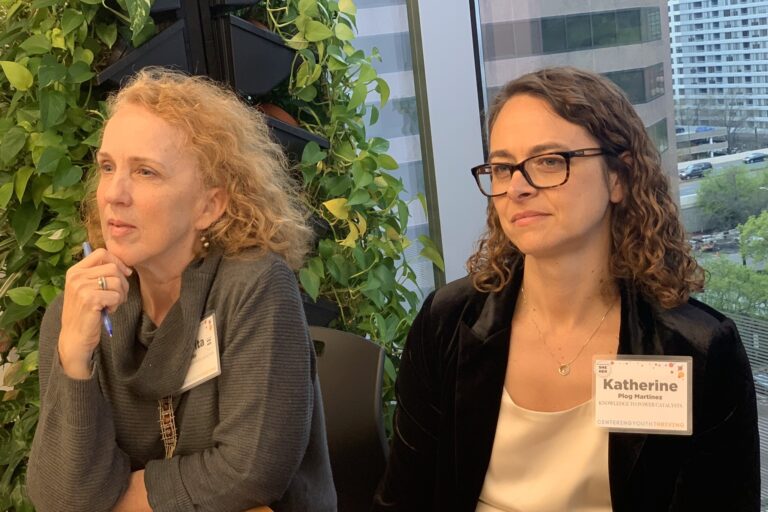
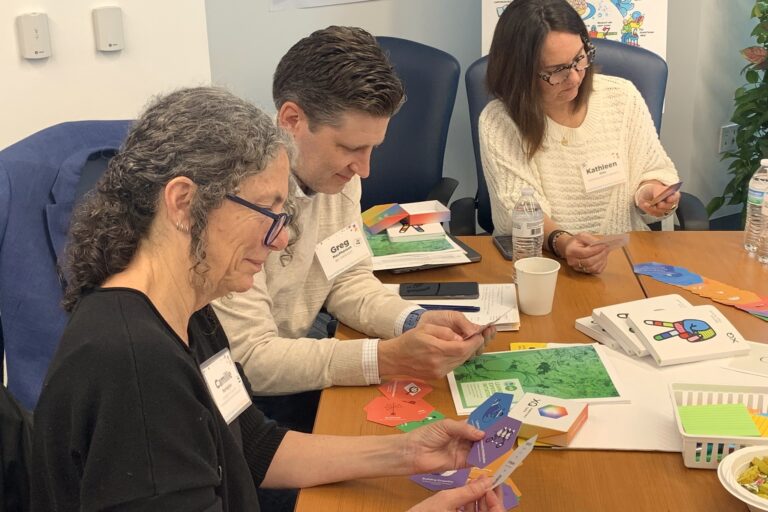
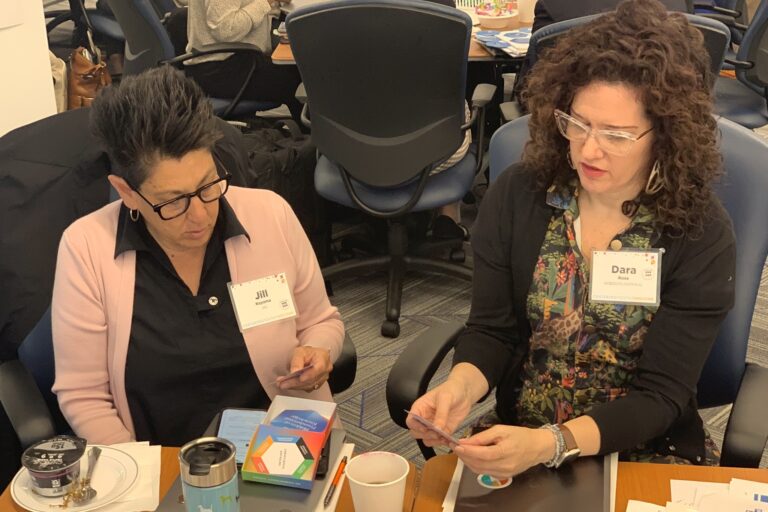
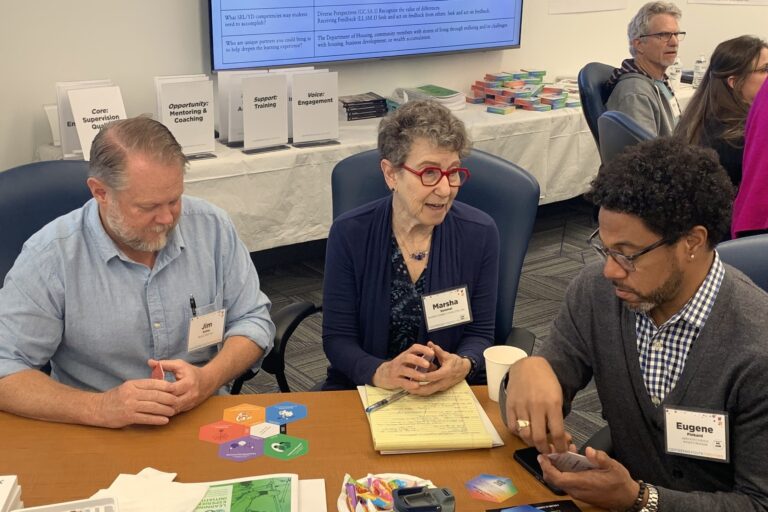
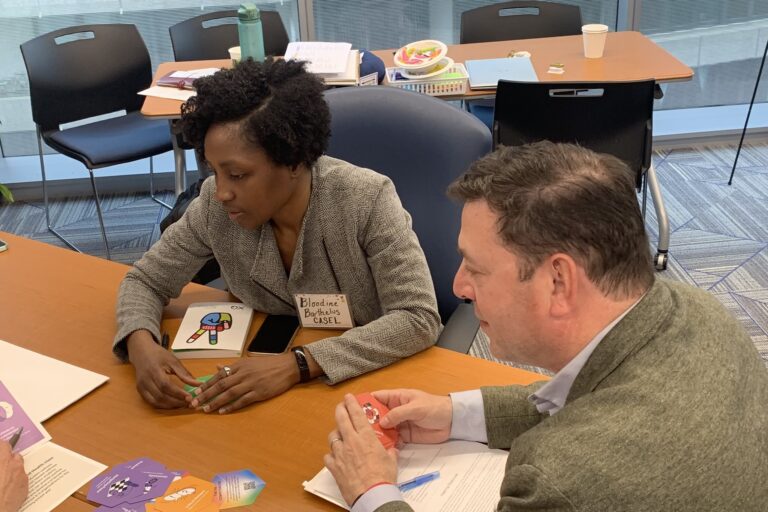
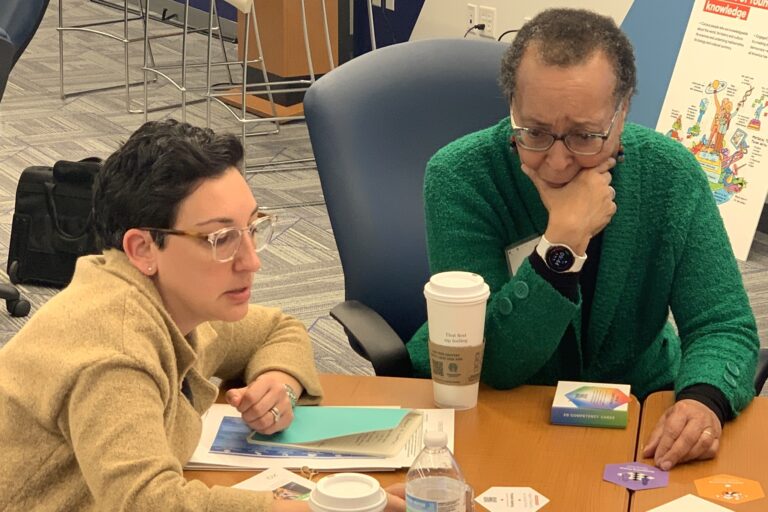
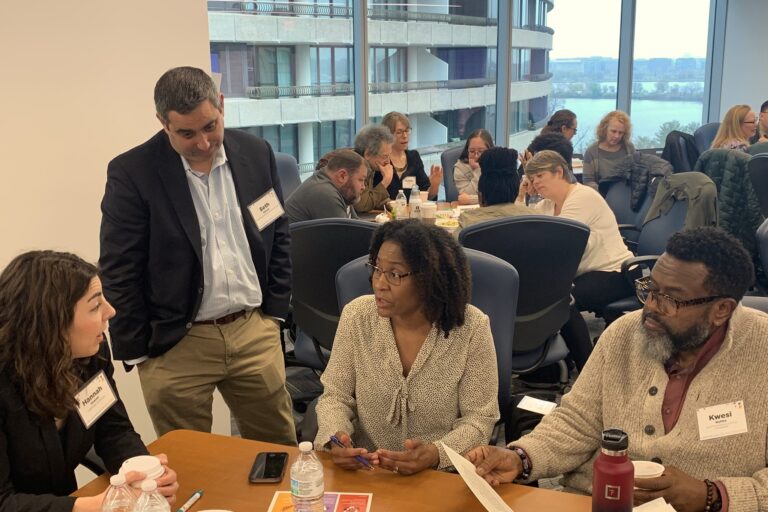
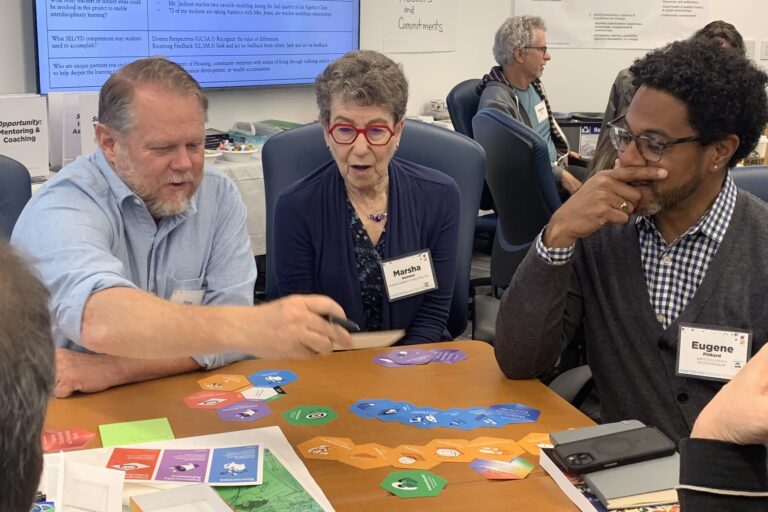
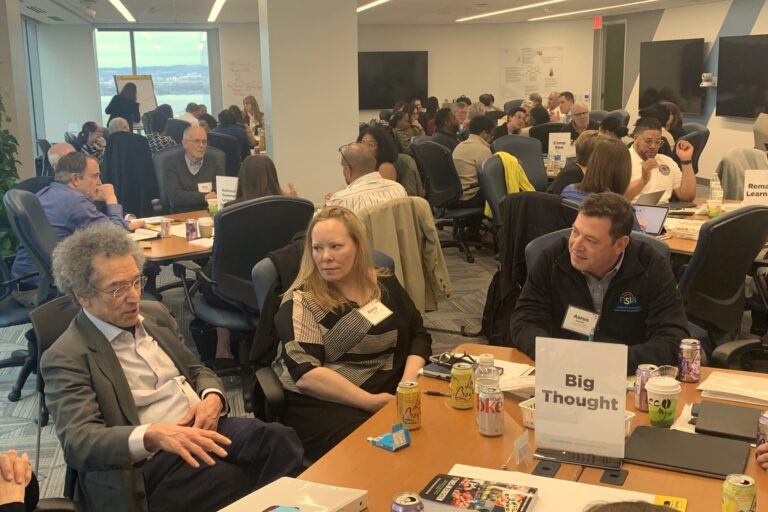
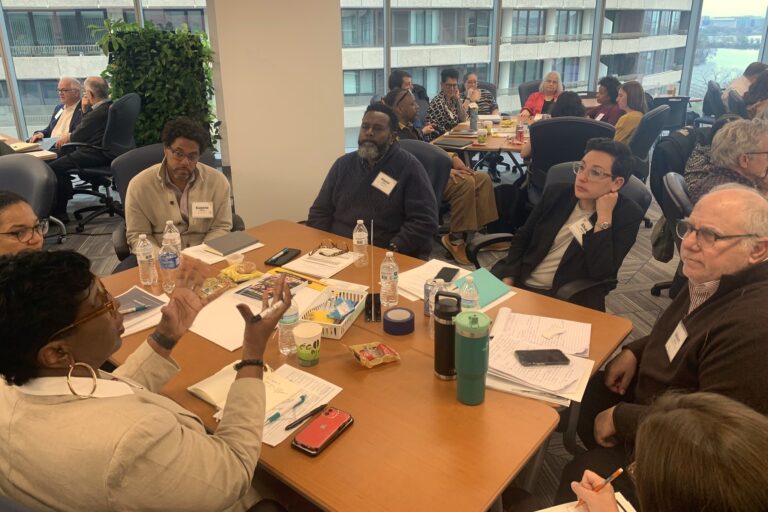
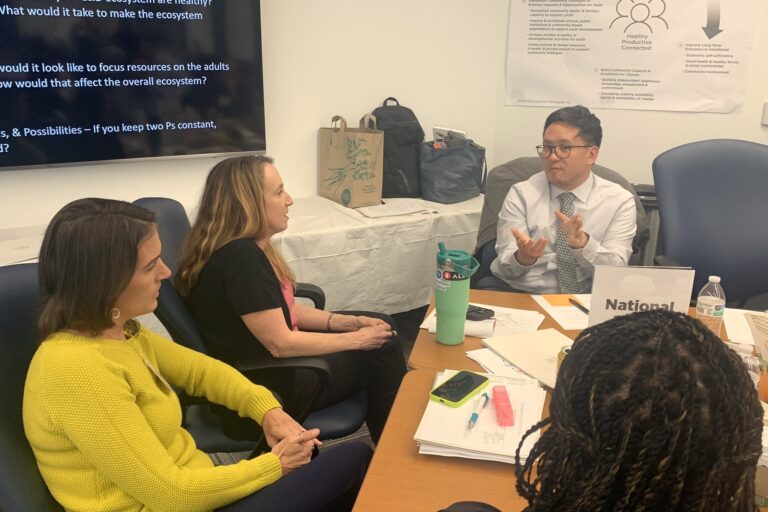
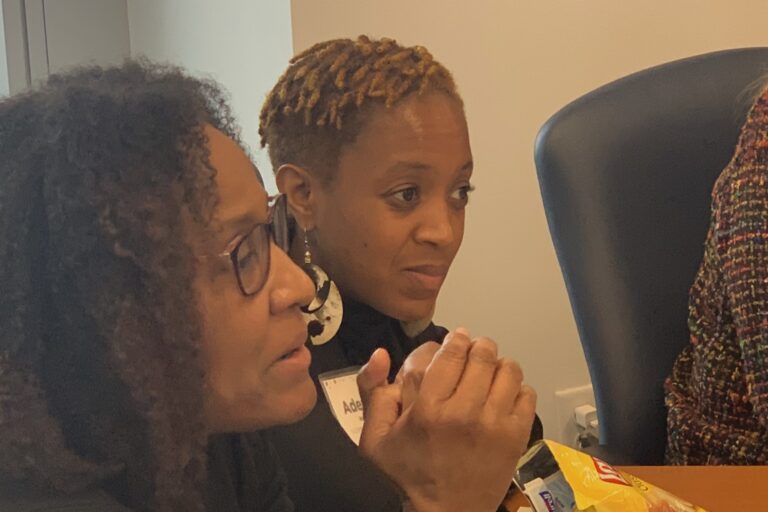
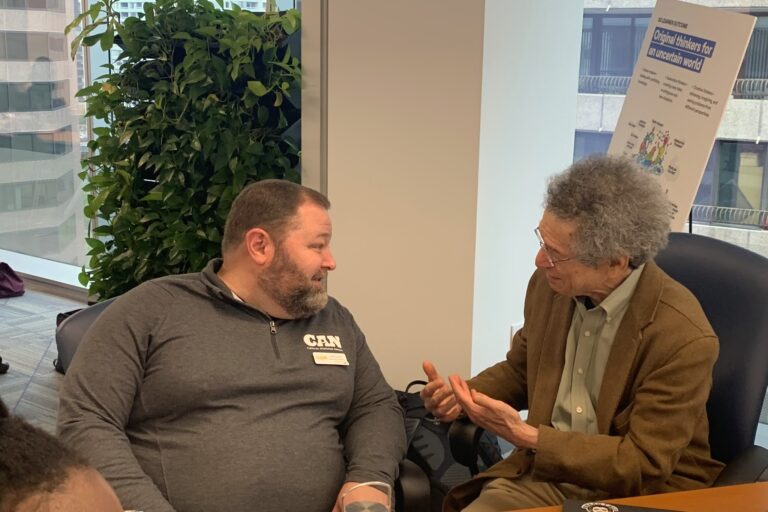
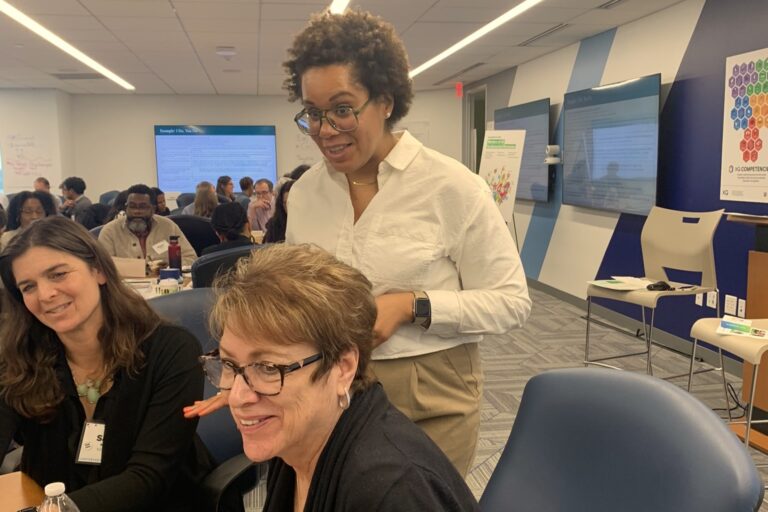
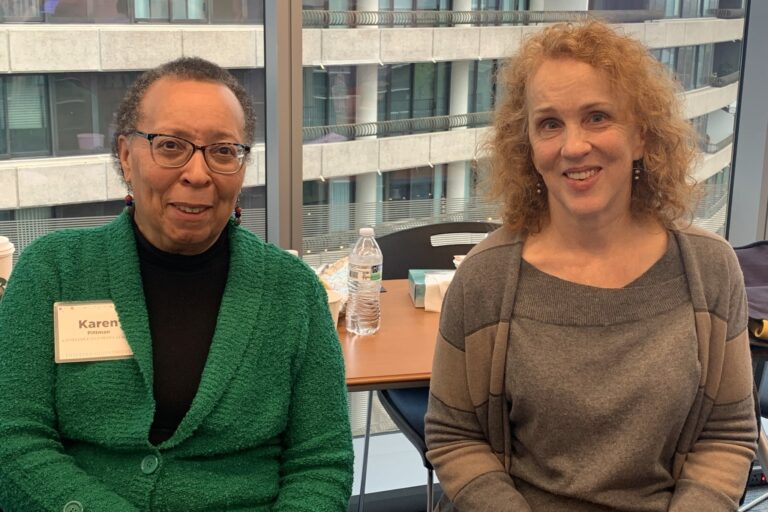
Webinar Centering Youth Thriving Introduction
Centering Youth Thriving Introduction
June 27, 2024
Additional Resources
Research • Links
The Future of Smart: How Our Education System Needs to Change to Help All Young People Thrive – Ulcca Joshi Hansen
Driving with the Brakes On: Why Are We Trying to Do Liberatory Practices within and Authoritarian Paradigm – Jal Mehta, Harvard University
K–12 value networks: The hidden forces that help or hinder learner-centered education – Thomas Arnett, Christensen Institute with Education Reimagined
Populace Insights: Purpose of Education Index – General Public and Parents Private Opinion Survey
Beacon Research National Survey of Parents for the Walton Family Foundation – Parent Survey
Can learning ecosystems work for all learners? (Part 2) – Thomas Arnett, Christensen Institute
Portrait of a Graduate Initiative Panorama Education
Science of Learning & Development Alliance – Guiding Principles for Whole Child Design – Design Principles for Schools & Design Principles for Community Settings
- The science behind the Elephant in the Classroom – Discusses the SoLD Alliance design principles (the blue wheel)*
Some Assembly Required: How a More Flexible Learning Ecosystem Can Better Serve All Kids and Unlock Innovation – Bellwether (Squire and Spurrier, Beta by Bellwether)
Learning Heroes Out-of-School-Time Programs This Summer | Paving the Way for Children to Find Passion, Purpose & Voice – Parents, Teachers, OST Provider Survey
Crisis Breeds Innovation: Pandemic Pods and the Future of Education – CRPE Parents Survey
Homeschooling in the time of COVID – Mosaic Survey
Foundations for Young Adult Success: A Developmental Framework – University of Chicago Consortium on School Research Infographic
Using student surveys to cultivate better learning environments – Builds upon UCCSR’s foundations work *
Finding Out What Matters for Youth: Testing Key Links in a Community Action Framework for Youth Development – Gambone, Klem & Connell, Youth Development Strategies Inc.
Productive, Healthy, and Connected: Youth Success Requires Community Action –Discusses the Community Action Framework for Youth Development*
Definition of Positive Youth Development – Federal Interagency Working Group on Youth Programs
Community Programs to Promote Youth Development – The National Academies Press
Current Research on Developmental Assets – Search Institute
Student Performance Framework and Competencies – XQ Institute (xqsuperschool.org)
Key Developmental Needs of Adolescents – Center for the Developing Adolescent
Pathways to the Middle Class: Balancing Personal and Public Responsibilities – Social Genome Project
Youth Acts, Community Impacts: Stories of Youth Engagement – The Forum for Youth Investment/Spark Action
* blogs and columns written by Karen Pittman that correlate with the coordinated researcher.



